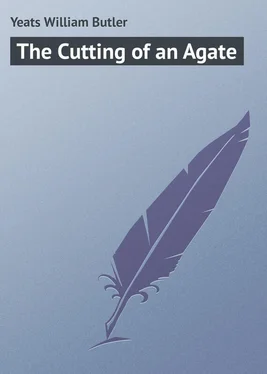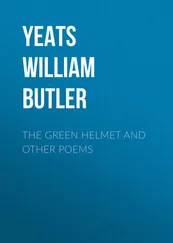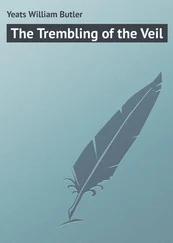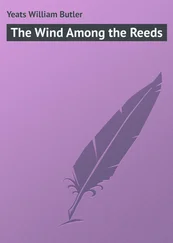William Yeats - The Cutting of an Agate
Здесь есть возможность читать онлайн «William Yeats - The Cutting of an Agate» — ознакомительный отрывок электронной книги совершенно бесплатно, а после прочтения отрывка купить полную версию. В некоторых случаях можно слушать аудио, скачать через торрент в формате fb2 и присутствует краткое содержание. Жанр: foreign_prose, на английском языке. Описание произведения, (предисловие) а так же отзывы посетителей доступны на портале библиотеки ЛибКат.
- Название:The Cutting of an Agate
- Автор:
- Жанр:
- Год:неизвестен
- ISBN:нет данных
- Рейтинг книги:4 / 5. Голосов: 1
-
Избранное:Добавить в избранное
- Отзывы:
-
Ваша оценка:
- 80
- 1
- 2
- 3
- 4
- 5
The Cutting of an Agate: краткое содержание, описание и аннотация
Предлагаем к чтению аннотацию, описание, краткое содержание или предисловие (зависит от того, что написал сам автор книги «The Cutting of an Agate»). Если вы не нашли необходимую информацию о книге — напишите в комментариях, мы постараемся отыскать её.
The Cutting of an Agate — читать онлайн ознакомительный отрывок
Ниже представлен текст книги, разбитый по страницам. Система сохранения места последней прочитанной страницы, позволяет с удобством читать онлайн бесплатно книгу «The Cutting of an Agate», без необходимости каждый раз заново искать на чём Вы остановились. Поставьте закладку, и сможете в любой момент перейти на страницу, на которой закончили чтение.
Интервал:
Закладка:
One often hears of a horse that shivers with terror, or of a dog that howls at something a man’s eyes cannot see, and men who live primitive lives where instinct does the work of reason are fully conscious of many things that we cannot perceive at all. As life becomes more orderly, more deliberate, the supernatural world sinks farther away. Although the gods come to Cuchulain, and although he is the son of one of the greatest of them, their country and his are far apart, and they come to him as god to mortal; but Finn is their equal. He is continually in their houses; he meets with Bodb Dearg, and Ængus, and Mananan, now as friend with friend, now as with an enemy he overcomes in battle; and when he has need of their help his messenger can say: ‘There is not a king’s son or a prince, or a leader of the Fianna of Ireland, without having a wife or a mother or a foster-mother or a sweetheart of the Tuatha de Danaan.’ When the Fianna are broken up at last, after hundreds of years of hunting, it is doubtful that he dies at all, and certain that he comes again in some other shape, and Oisin, his son, is made king over a divine country. The birds and beasts that cross his path in the woods have been fighting-men or great enchanters or fair women, and in a moment can take some beautiful or terrible shape. We think of him and of his people as great-bodied men with large movements, that seem, as it were, flowing out of some deep below the shallow stream of personal impulse, men that have broad brows and quiet eyes full of confidence in a good luck that proves every day afresh that they are a portion of the strength of things. They are hardly so much individual men as portions of universal nature, like the clouds that shape themselves and reshape themselves momentarily, or like a bird between two boughs, or like the gods that have given the apples and the nuts; and yet this but brings them the nearer to us, for we can remake them in our image when we will, and the woods are the more beautiful for the thought. Do we not always fancy hunters to be something like this, and is not that why we think them poetical when we meet them of a sudden, as in these lines in Pauline ?
‘An old hunter
Talking with gods; or a high-crested chief
Sailing with troops of friends to Tenedos.’
One must not expect in these stories the epic lineaments, the many incidents woven into one great event of, let us say, the story of the War for the Brown Bull of Cuailgne, or that of the last gathering at Muirthemne. Even Diarmuid and Grania , which is a long story, has nothing of the clear outlines of Deirdre , and is indeed but a succession of detached episodes. The men who imagined the Fianna had the imagination of children, and as soon as they had invented one wonder, heaped another on top of it. Children – or, at any rate, it is so I remember my own childhood – do not understand large design, and they delight in little shut-in places where they can play at houses more than in great expanses where a country-side takes, as it were, the impression of a thought. The wild creatures and the green things are more to them than to us, for they creep towards our light by little holes and crevices. When they imagine a country for themselves it is always a country where you can wander without aim, and where you can never know from one place what another will be like, or know from the one day’s adventure what may meet you with to-morrow’s sun.
Children play at being great and wonderful people, at the ambitions they will put away for one reason or another before they grow into ordinary men and women. Mankind as a whole had a like dream once; everybody and nobody built up the dream bit by bit, and the ancient story-tellers are there to make us remember what mankind would have been like, had not fear and the failing will and the laws of nature tripped up its heels. The Fianna and their like are themselves so full of power, and they are set in a world so fluctuating and dreamlike, that nothing can hold them from being all that the heart desires.
I have read in a fabulous book that Adam had but to imagine a bird and it was born into life, and that he created all things out of himself by nothing more important than an unflagging fancy; and heroes who can make a ship out of a shaving have but little less of the divine prerogatives. They have no speculative thoughts to wander through eternity and waste heroic blood; but how could that be otherwise? for it is at all times the proud angels who sit thinking upon the hill-side and not the people of Eden. One morning we meet them hunting a stag that is ‘as joyful as the leaves of a tree in summertime’; and whatever they do, whether they listen to the harp or follow an enchanter over-sea, they do for the sake of joy, their joy in one another, or their joy in pride and movement; and even their battles are fought more because of their delight in a good fighter than because of any gain that is in victory. They live always as if they were playing a game; and so far as they have any deliberate purpose at all, it is that they may become great gentlemen and be worthy of the songs of the poets. It has been said, and I think the Japanese were the first to say it, that the four essential virtues are to be generous among the weak, and truthful among one’s friends, and brave among one’s enemies, and courteous at all times; and if we understand by courtesy not merely the gentleness the story-tellers have celebrated, but a delight in courtly things, in beautiful clothing and in beautiful verse, one understands that it was no formal succession of trials that bound the Fianna to one another. Only the Table Round, that is indeed, as it seems, a rivulet from the same well-head, is bound in a like fellowship, and there the four heroic virtues are troubled by the abstract virtues of the cloister. Every now and then some noble knight builds a cell upon the hill-side, or leaves kind women and joyful knights to seek the vision of the Grail in lonely adventures. But when Oisin or some kingly forerunner – Bran, son of Febal, or the like – rides or sails in an enchanted ship to some divine country, he but looks for a more delighted companionship, or to be in love with faces that will never fade. No thought of any life greater than that of love, and the companionship of those that have drawn their swords upon the darkness of the world, ever troubles their delight in one another as it troubles Iseult amid her love, or Arthur amid his battles. It is an ailment of our speculation that thought, when it is not the planning of something, or the doing of something, or some memory of a plain circumstance, separates us from one another because it makes us always more unlike, and because no thought passes through another’s ear unchanged. Companionship can only be perfect when it is founded on things, for things are always the same under the hand, and at last one comes to hear with envy the voices of boys lighting a lantern to ensnare moths, or of the maids chattering in the kitchen about the fox that carried off a turkey before breakfast. Lady Gregory’s book of tales is full of fellowship untroubled like theirs, and made noble by a courtesy that has gone perhaps out of the world. I do not know in literature better friends and lovers. When one of the Fianna finds Osgar dying the proud death of a young man, and asks is it well with him, he is answered, ‘I am as you would have me be.’ The very heroism of the Fianna is indeed but their pride and joy in one another, their good fellowship. Goll, old and savage, and letting himself die of hunger in a cave because he is angry and sorry, can speak lovely words to the wife whose help he refuses. ‘It is best as it is,’ he said, ‘and I never took the advice of a woman east or west, and I never will take it. And oh, sweet-voiced queen,’ he said, ‘what ails you to be fretting after me? And remember now your silver and your gold, and your silks … and do not be crying tears after me, queen with the white hands,’ he said, ‘but remember your constant lover Aodh, son of the best woman of the world, that came from Spain asking for you, and that I fought on Corcar-an-Dearg; and go to him now,’ he said, ‘for it is bad when a woman is without a good man.’
Читать дальшеИнтервал:
Закладка:
Похожие книги на «The Cutting of an Agate»
Представляем Вашему вниманию похожие книги на «The Cutting of an Agate» списком для выбора. Мы отобрали схожую по названию и смыслу литературу в надежде предоставить читателям больше вариантов отыскать новые, интересные, ещё непрочитанные произведения.
Обсуждение, отзывы о книге «The Cutting of an Agate» и просто собственные мнения читателей. Оставьте ваши комментарии, напишите, что Вы думаете о произведении, его смысле или главных героях. Укажите что конкретно понравилось, а что нет, и почему Вы так считаете.












